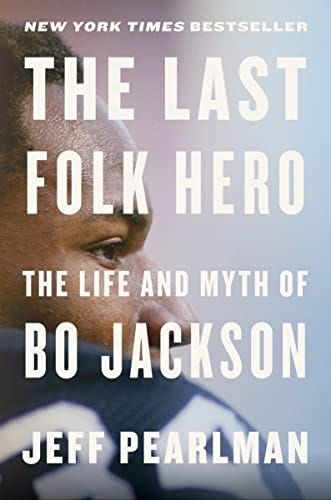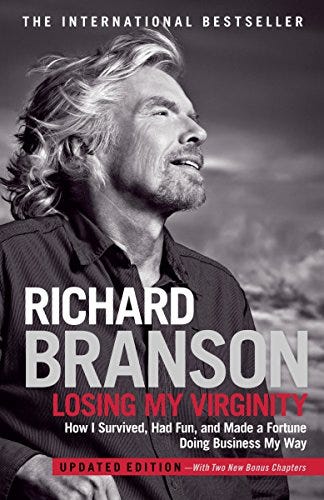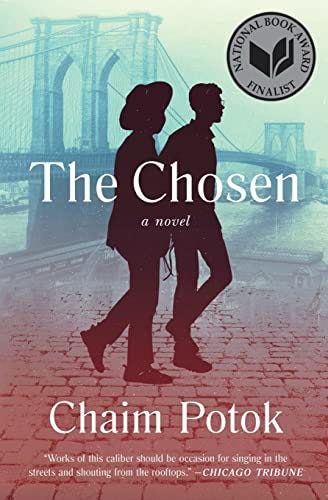Bo Jackson, Pistachios, and the Things That Quietly Disappear
Books that changed my thinking, behaviors, and life
Hello,
The other day, I was eating lunch with my son. Every day, after training, he comes home for a break before heading back to school. I make his lunch, we sit down, and for 30 minutes, it’s just the two of us.
He tells me how practice went—what he’s working on, how he’s feeling, the little wins and frustrations. It’s a simple routine, one that probably seems ordinary to him. But to me, it’s a gift. A small pocket of time before life pulls him back into the world.
For many of these meals, he eats a small bowl of pistachios. High fiber, high protein—his routine. I usually dip in for a few, a silent tax for making his food.
But the other day, as I reached for a handful, something struck me.
Ever since he was young, he’s been eating pistachios, and the shells have always been tan. The thought seemed small at first, barely worth noticing. But then a memory surfaced—one I hadn’t thought about in years.
Where did all the red pistachios go?
If you grew up in the ‘70s or ‘80s, you remember them. The shells stained a deep, artificial red that bled onto your fingers, marking you as a pistachio eater for hours. Back then, I assumed that’s just what pistachios looked like. I never saw them any other way.
And here’s the thing—I loved them. Not just the taste, but the experience. There was something about licking the red dust off my fingertips, a mix of fake sweetness and salt, that made the whole process feel…fun. It wasn’t just eating; it was an event.
Then, at some point, without notice or announcement, the red pistachios vanished.
I had adjusted to their disappearance without even realizing it. I never stopped eating pistachios, but I also never stopped to ask why they had changed.
So I looked it up.
Turns out, the reason is simple: most pistachios used to be imported from the Middle East, where traditional harvesting methods left blemishes on the shells. To cover imperfections and make them stand out in stores, importers dyed them red. But today, nearly all pistachios sold in the U.S. come from California, where mechanical harvesting prevents shell stains. No stains, no need to dye them.
Just like that, something that was once a defining part of childhood snacks quietly disappeared.
I look across the table at my son, now taller than me. Stronger than me. Faster than me. He eats pistachios without a second thought, and for a moment, I wonder what he’ll reminisce about one day.
What’s his version of the red pistachio?
But this story isn’t really about pistachios.
It’s about the things that quietly disappear. Like childhood.
There’s no moment where it officially ends. No announcement, no clear line in the sand. It just fades, little by little, until one day you look up and realize it’s gone.
It’s the last time they reach for your hand in public.
The last time they ask for your help with homework.
The last time they fall asleep in the car on the way home.
The last time they want to play catch in the backyard.
Or what I’m experiencing now—the last time you’re the strongest, fastest, smartest person in the house.
And you never know it’s the last time until long after it’s passed.
I dodge his arm-wrestling challenges now—not because I don’t want to lose, but because I know one day, he’ll stop asking. One day, he won’t rush through the door eager to tell me about practice. One day, our lunches together will quietly disappear, replaced by a packed schedule, a different routine, a life that keeps moving forward.
And that’s how it always happens.
The challenge for us isn’t just letting go. It’s noticing—catching those ordinary moments while they’re still happening, before they slip through our fingers.
Because childhood doesn’t end in a single day. But if we’re not paying attention, we’ll miss the fact that it’s ending at all.
We can’t stop time. But we can be present enough to appreciate it before it’s gone.
So here’s something to think about: What’s the red pistachio in your life right now—the thing that feels so ordinary today but will someday be just a memory?
And what would happen if, just for a moment, you stopped and truly savored it before it quietly disappeared?
Welcome to This Week’s Three Book Thursday.
1. Biography
The Last Folk Hero: The Life and Myth of Bo Jackson
Summary
Bo Jackson was my teenage sports hero. My bedroom walls weren’t just decorated with his image—they were covered in Bo. Posters from Sports Illustrated, Nike’s Bo Knows campaign, action shots of him bulldozing linebackers and launching baseballs into the stratosphere. He was more than an athlete; he was a myth, a walking impossibility.
And then, just like that, he was gone. Bo has always been a private figure, especially since his retirement. He never leaned into the spotlight, never tried to cash in on his legacy the way so many others did. So when The Last Folk Hero: The Life and Myth of Bo Jackson was published, I couldn’t have been more excited. A book that finally pulls back the curtain, finally gives us the full story of the most electrifying athlete of a generation? I was all in.
And it delivered.
Everyone loves Bo stories. They blow your mind. Pearlman’s book is packed with them—like the time Bo ran up an outfield wall sideways, Spider-Man style, or the time he threw a baseball from the warning track to home plate on a rope, without even crow-hopping. The stories sound like folklore, like something passed down around a campfire. Except with Bo, they’re real.
But this book isn’t just about superhuman feats. It’s about the man behind them. Bo was raw talent in its purest form—unfiltered, almost untouched by structured training. He frustrated coaches who wanted to refine him, because he didn’t see sports as a grind. He played because he wanted to, because it was fun. And when a devastating injury cut his career short, it felt like the universe had cheated us out of something—like we never got to see the full extent of what Bo Jackson could have been.
That’s what makes this book so compelling. It’s a window into a time when athleticism felt limitless, when a single player could captivate an entire generation. But it’s also a reminder that even the greatest aren’t invincible. Bo Jackson was a phenomenon, but time, injury, and circumstance have a way of humbling even the legends.
And that’s why his story sticks with you. It’s not just about what he did—it’s about what he represented. The sheer joy of playing. The wonder of witnessing something never seen before. The fleeting nature of greatness.
Bo Jackson was larger than life. But, as this book reminds us, even the biggest legends don’t last forever. And that’s exactly what makes them legends.
Favorite Quote, Insight, & Principle
Quote: “The duality of Bo Jackson—ferocious competitor on the field, gentle family man off it—reminds us that strength and tenderness aren't contradictory traits.”
Insight: Bo's quiet dignity during his career's highest peaks demonstrated that true greatness doesn't require self-promotion or showmanship.
Principle: Bo's childhood in Bessemer forged his resilience—growing up with little meant he appreciated everything earned through hard work and determination.
Author: Jeff Pearlman
Themes: Biography, Sports, Peak performance
2. Memoir
Losing My Virginity: How I Survived, Had Fun, and Made a Fortune Doing Business My Way
Summary
Richard Branson doesn’t do things the conventional way. Never has, never will. Losing My Virginity: How I Survived, Had Fun, and Made a Fortune Doing Business My Way is a manifesto on risk, resilience, and refusing to take life too seriously.
Branson built the Virgin empire with a relentless curiosity and a belief that business should be an adventure, not a grind. He didn’t sit in boardrooms analyzing spreadsheets—he jumped headfirst into industries he knew nothing about, from music to airlines to space travel. He was never the smartest person in the room, but he was always the boldest, the most willing to bet on himself. And time and again, those bets paid off.
But this isn’t just a story about business. It’s about mindset. Branson turned failures into fuel, obstacles into opportunities. He understood that playing it safe is often the riskiest thing you can do. Whether he was challenging British Airways with Virgin Atlantic, pushing the boundaries of space with Virgin Galactic, or setting world records in hot air balloons, he approached everything with the same philosophy: say yes first, figure it out later.
And here’s the thing—his approach isn’t just for entrepreneurs. It’s for anyone who wants to live a bigger, bolder life. It’s about embracing uncertainty, chasing ideas before they feel fully formed, and understanding that regret comes not from failing, but from never trying at all.
Branson’s life is proof that work and play don’t have to be separate, that risk and reward are inseparable, and that success isn’t about following a formula—it’s about writing your own.
Favorite Quote, Insight, & Principle
Quote: “For a successful entrepreneur, the most crucial quality is the courage to dream and follow those dreams, even when everyone around you says they're impossible.”
Insight: Business opportunities are like buses—there's always another one coming around the corner, so if you miss one, don't worry, just prepare yourself for the next one.
Principle: Complexity is your enemy. Any fool can make something complicated. It is hard to keep things simple.
Author: Richard Branson
Themes: Memoir, Entrepreneurship
3. Fiction
The Chosen
Summary
In medical school, my nights followed a strict routine: long hours studying, exhaustion pulling at my body, but before bed—always, always—a fiction book. It was my escape, my way of stepping out of the relentless grind and into another world for an hour before closing my eyes. Looking back, most of my fiction reading happened in those years, a quiet ritual that kept me sane. And one of the books that stayed with me from that time is The Chosen by Chaim Potok. It is one of my favorites.
At its core, The Chosen is a novel about friendship, identity, and the tension between tradition and the modern world. But to leave it at that would be missing the bigger picture. This is a story about fathers and sons, about the weight of expectation, about the way we all struggle to reconcile who we are with who we’re supposed to be.
The novel follows two boys in 1940s Brooklyn—Reuven Malter and Danny Saunders. Reuven is the son of a progressive scholar, a thinker who believes in blending religious tradition with secular knowledge. Danny is the son of a Hasidic rabbi, raised in a world of strict religious discipline, expected to follow in his father’s footsteps as the next spiritual leader of their community. The two boys are thrown together after an intense baseball game—one where Danny smashes a ball straight into Reuven’s face, landing him in the hospital. From that moment, their lives become intertwined, their friendship growing in the space between faith and intellectual curiosity, between duty and personal ambition.
What makes The Chosen powerful is its quiet intensity. It’s not a book about grand external conflicts; it’s about the wars waged inside ourselves. Danny is a brilliant thinker, drawn to psychology and philosophy, but he’s trapped in a role he never chose. Reuven, meanwhile, watches his own father push against tradition, urging him to question, to seek, to challenge. And at the heart of it all is the question every ambitious, driven person eventually faces: Who am I, really? Am I the person I want to be, or the person I was raised to be?
This book hit differently for me as a medical student. The idea of wrestling with expectations—both external and internal—felt personal. The idea that knowledge and faith, reason and belief, aren’t always at odds but can exist together—that stuck with me. And the relationship between fathers and sons, the unspoken weight of legacy and love, carried a depth I wouldn’t fully appreciate until later in life.
The Chosen reminds us that our paths aren’t always linear. That the expectations placed upon us, whether by family, culture, or even ourselves, don’t have to define us. That sometimes, growth isn’t about rebellion, but about understanding. And perhaps most importantly, it shows that real friendship—the kind that pushes you, that makes you question, that forces you to see the world differently—is one of the most valuable things we can find.
It’s been years since I first read this book, but like the best fiction, it lingers. It’s a reminder that our struggles are universal, that the tension between tradition and change, faith and reason, personal dreams and familial duty, is one we all face in some form. And in that struggle, we find who we truly are.
Favorite Quote, Insight, & Principle
Quote: “No one knows he is fortunate until he becomes unfortunate; that’s the way the world is.”
Quote: “You can listen to silence and learn from it. It has a quality and a dimension all its own.”
Insight: As you grow older, you will discover that the most important things that will happen to you will often come as a result of ordinary things.
Principle: A man must fill his life with meaning; meaning is not automatically given to life. It is hard work to fill one’s life with meaning.
Author: Chaim Potok
Themes: Fiction
Time doesn’t announce its changes. It moves quietly, reshaping the things we take for granted—until one day, we look up and realize they’re gone.
Bo Jackson wasn’t just an athlete; he was a force of nature, a living legend who seemed untouchable—until an injury ended it all in an instant. Richard Branson built Virgin by saying yes before the world could tell him no, knowing that opportunities don’t wait. The Chosen is about growing into yourself, about realizing that the expectations placed upon us—by family, by faith, by life itself—aren’t always the ones we have to carry.
This is the thread between them: change is inevitable, but our awareness of it is not.
We rarely recognize the last time while it’s happening. We assume there will always be another chance. Another game. Another moment to hold onto. Until suddenly, there isn’t.
Just like the red pistachios, you don’t notice when they disappear. You adjust without realizing it, only to look back years later and wonder when, exactly, things changed.
The challenge isn’t letting go—it’s noticing before it’s too late. To pay attention while it still matters. To appreciate a simple conversation, a shared meal, the way they still call out “Hey, Dad!” the moment they walk through the door.
We can’t stop time. But we can be present enough to hold onto the moments that matter before they quietly disappear.
Always ❤️📚💡
P.S. Robert Dwyer, the fine gentleman I met on the plane while writing this, enjoy your ski trip!
Three Book Thursday is free, but there are many costs to create these posts each week. So, can you do me a favor?
If you find value here, please support the newsletter.
Or,
Please share Three Book Thursday with a friend, college, family member, or post it to your socials. I’m working hard to grow this audience, but let’s be honest—you’re probably better at it than I am.
Or, do both!






